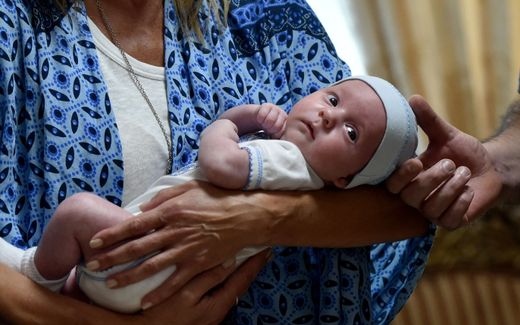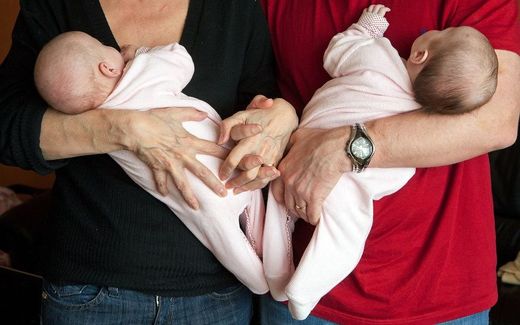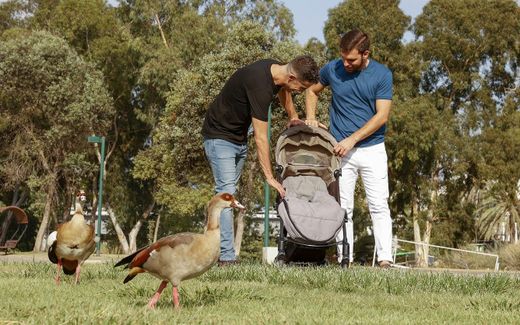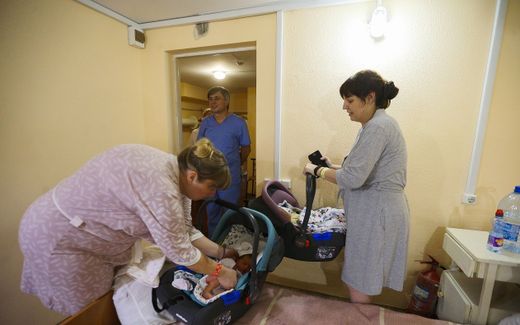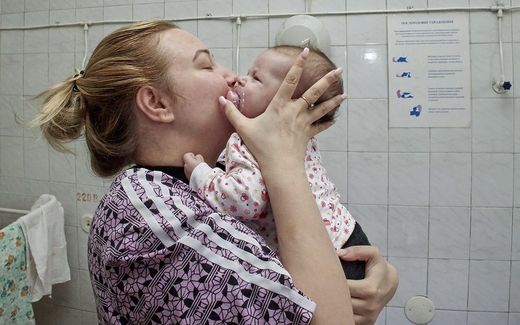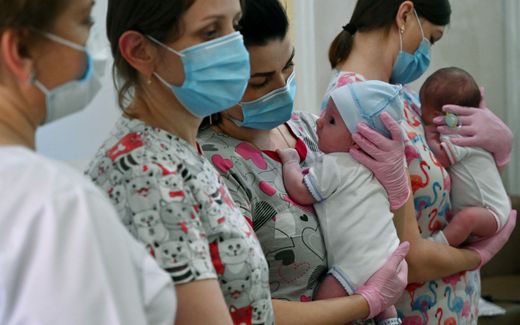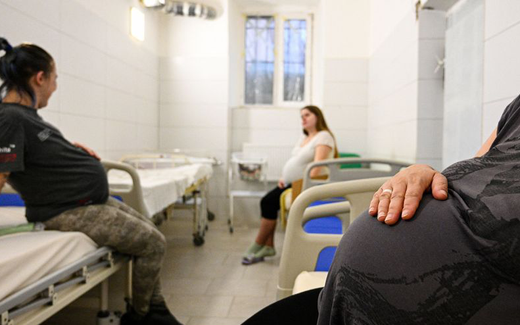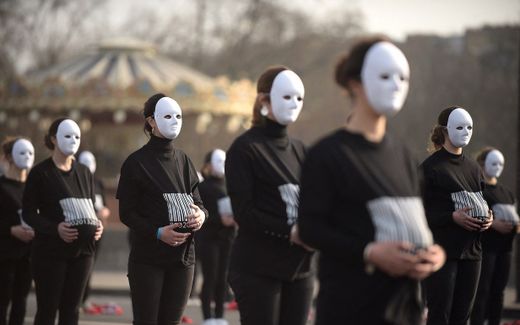Olivia was born through a surrogate mother: ‘I always knew something was wrong’
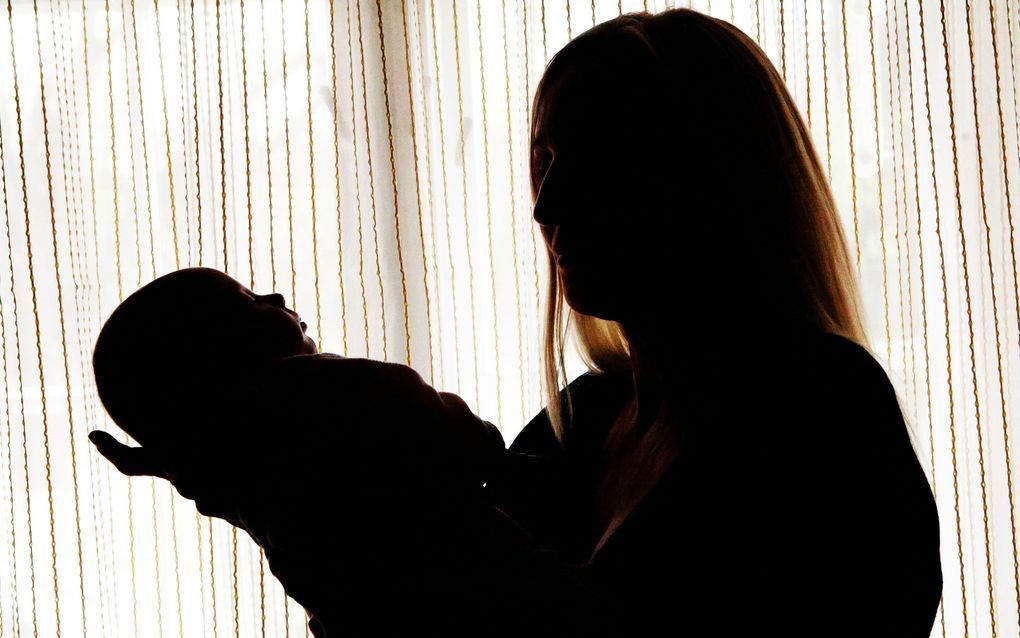
According to Olivia Maurel, the child is often forgotten in the debate around surrogacy. Photo AFP, Olexander Zobin
Southern Europe
Something was just wrong, but Olivia Maurel did not know what. Until she found out that her parents paid for her. She found her biological mother after a long search.
Receive CNE's weekly newsletter? Feel free to sign up here.
Olivia Maurel always knew something was “off” about her birth. The secretive behaviour of her mother made it clear to her: the woman who raised her did not give birth to her. “There were no pictures of my pregnant mother, and I am five days old in the first pictures of me.”
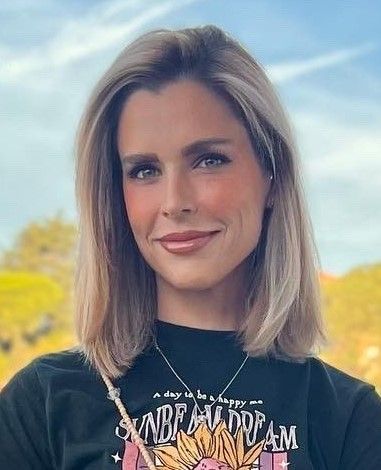
The 31-year-old was born through surrogacy in the American state of Kentucky. In her home in Cannes, southern France, the now mother-of-three opens up about her search for her identity, the daily consequences of surrogacy and her fight against the legalisation of the practice in France. “We neglect the effect surrogacy has on children.”
Growing up as an only child in a well-off family, Maurel says she got everything she could ever ask for. “I had a very good education, and my parents dressed me in the best clothes.” However, emotionally speaking, Maurel claims to have lacked a lot. “It was difficult for me to grow up in a family where emotions and feelings were little talked about.”
Maurel faces the consequences of that every day. “My husband sometimes says that I hardly ever hug him. Well, no one ever taught me to hug.”
Purse
From an early age, Maurel knew something was off in the family. “It’s this little unpleasant feeling that you have inside. You don’t know where to look, but know it is there.” So, when she became a little older, young Olivia snuck into her mother’s purse, looking for her identity card. “She had always been secretive about her age.”
The age convinced her that her mother did not give birth to her: “She was fifty, and I realised that she couldn’t have had me at that age, now thirty years ago. Aside from that, there were also physical differences. I look a bit like my father but not at all like my mother. I am tall and blonde, and my mother is short and brown.”
A DNA test done last year gave the definitive answer. Through MyHeritage, Maurel discovered that she had no French blood. “I was 33 per cent Lithuanian and 33 per cent Norwegian. However, I had nothing to do with France, where my mom comes from.” That her mother was not her biological mother did not come as a shock to the French woman. “I spoke about it every time I went to a medical appointment when they asked me about my medical background. I was not shocked at all.”
However, something else did give Maurel a shock. “I was matched with an American cousin and uncle.” For Maurel, this was not a negative thing. “It was really pleasant because I have always wanted a big family. And I discovered I had a huge American family; it was the best present I could ever ask for.”
Voids
Eventually, Maurel got in touch with her biological mother. “She was happy to speak with me and was really surprised. She did not think she would ever meet me.” Conversations with her mother gave Maurel answers to questions she had had all her life. “I needed something from her: the answers to voids that were in me all my life. How was my birth? And why did she give me away?”
But it was also mundane things Maurel wanted to know. “Stupid things that were so important to me because I didn’t share them with my own mother.” One example is purple, Maurel’s favourite colour: “I never knew why I loved that colour so much. And now I know because it’s also my biological mother’s favourite colour.”
Despite the DNA test and recognition of her biological mother, Maurel is officially a child of the parents she grew up with. Immediately after her birth, her birth certificate was sealed, and she was given a new one. There, her intended parents are listed as biological parents, allowing them to take little Olivia to France. “Swapping birth certificates should be completely illegal when you think of it.”
Sealed birth certificates
Sealed birth certificates emerged in the mid-20th century to protect adopted children from the shame of illegitimacy. Although laws around surrogacy in the US vary from state to state, a birth certificate can be reissued with the names of the intended parents on it. The original birth certificate containing the biological mother is then sealed and is not immediately accessible to the child. In Kentucky, for example, it requires a court order. After a request for inspection, the court will first have to seek permission from the biological parents. If these parents are deceased, a judge will rule over the request. In addition, a perusal request involves costs of up to $250.
Genes
Maurel’s parents came into contact with her biological mother in the early nineties through a surrogacy agency. Because of the age of her intended mother, surrogacy was the only option left.
The surrogate mother had her own reasons for surrogacy. She lost a child through a domestic accident and felt she had to “repay life.” Aside from that, she also had four children to take care of. “She possibly needed the money.”
And money, she got. Although the exact sum is unknown, trips to Disneyland were involved. Money was also why Maurel did not speak with her parents about the surrogacy agreement. “It was like, Olivia, shut up. Swallow your feelings; they might have spent over 150,000 dollars trying to have you.”
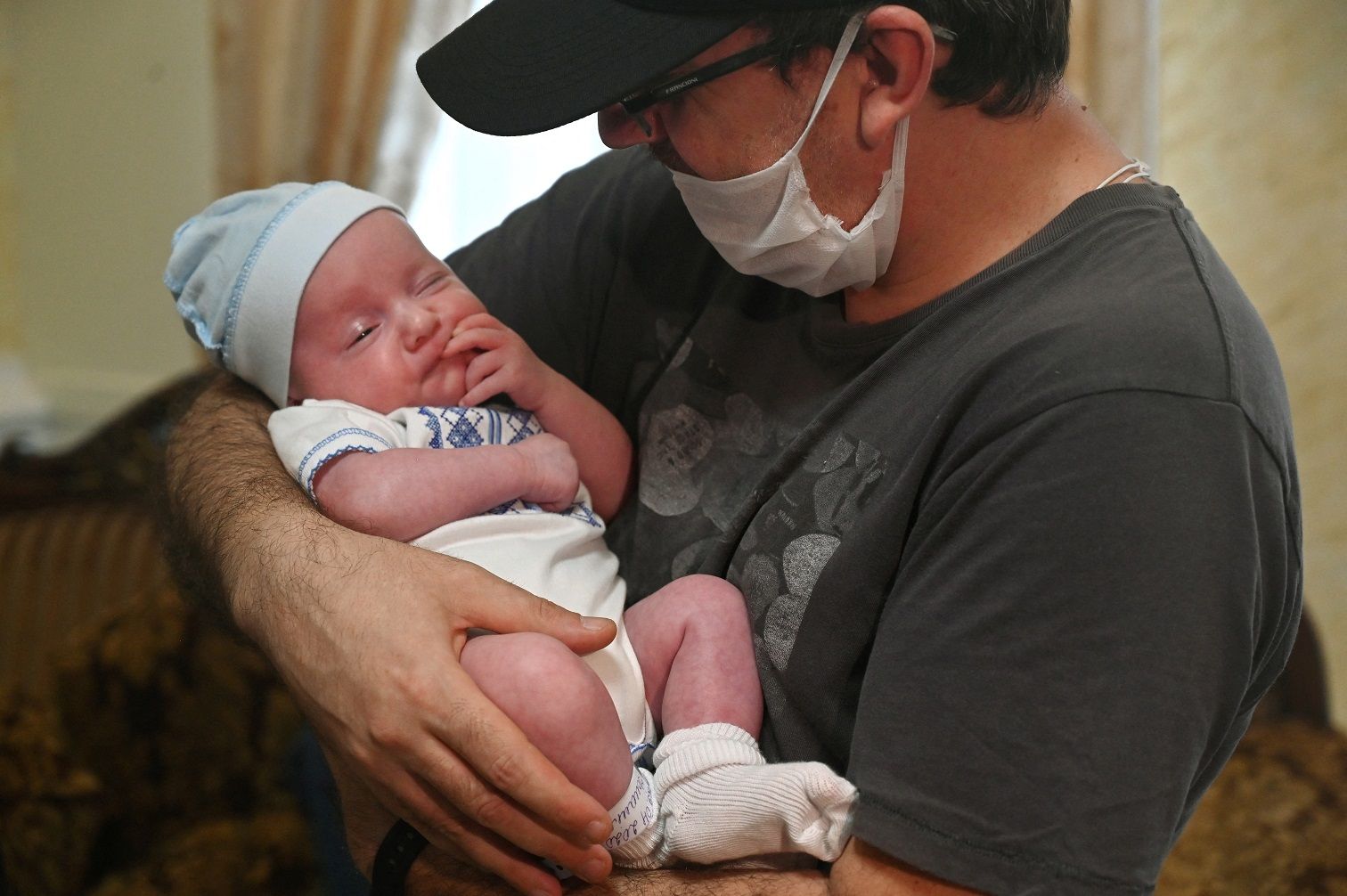
All these question marks over her head caused Maurel psychological problems, she says. She fears rejection and has difficulties in her relationships with older women. Apart from that, she has bipolar disorder, giving her depressive episodes. However, that is not because she was born from surrogacy, Maurel warns. “I inherited it from my biological mother, who is not mentally stable. The surrogacy agency should have rejected her because of that, but they did not.”
Maurel is still in touch with the family that raised her and her biological family. However, she is convinced that surrogacy is a bad thing. The births of her children, now aged between two and five, made her even more determined to fight against surrogacy. “I was so scared during my pregnancies because I did not know 25 per cent of my children’s genes. I did not know what medical issues I could transfer to them.”
Story
Maurel’s experiences with surrogacy caused her to combat it. However, she stresses that her story does not represent every child born through surrogacy. “Maybe someone else that is born through surrogacy lived it perfectly well. And that’s good to hear. But I lived it really badly.”
And that is why she wants to share her story on TikTok. “Today, in French media, we only see the positive aspects of surrogacy. And I really want to educate people on how surrogacy can be bad and ís bad. Both on the woman and the child.” On her TikTok account, with over 30,000 followers, Maurel shares her comments on surrogacy and bipolar disorder. “On TikTok, you do not have to be fake about everything, like Instagram.”
Although the incumbent President Emmanuel Macron has named the legalisation of surrogacy a “red line” he does not want to cross, Maurel fears the elections, which are scheduled for 2027. “We already have a Minister of Transport (Clément Beaune, LN) who wants to legalise the practice. But I keep saying it: having children is not a right.”
A lacking legal basis
Although surrogacy has been under a magnifying glass in recent years, it is not a recent development. Throughout history, there have been women who bore children for others. In 1976, US lawyer Noel Keane drafted the first surrogacy contract. Elizabeth Kane became the world’s first contracted surrogate mother in 1980. While the practice was not illegal, neither was it legally regulated. That is different today, although the legal status varies from state to state. Where some have written laws, such as California, other states have common law. There, they treat surrogacy in a set way without specific legislation. In Europe, this situation is similar. Countries like the Netherlands and Belgium do not currently have legislation around surrogacy.
Similar calls for regulation can be heard in other countries, such as Belgium and the Netherlands. But reverse trends are also noticeable. Following Russia, Georgia is stopping surrogacy for foreigners from January 1st, a major setback for the global surrogacy industry. In Italy, the Senate is considering a law to penalise parents who bring children via surrogate mothers from abroad. It makes Maurel hopeful. “I think the Italian law proposal is a bit excessive. I am not sure how they will put someone in prison, but I am hopeful for these developments”.
In speaking out against surrogacy, Maurel can count on the support of her family. “My husband is possibly even fiercer against surrogacy than I am,” she says. Besides, she does not keep her life story hidden from her children. “I tell them everything because they deserve that. It’s their story, too.”
Science divided over psychological effects
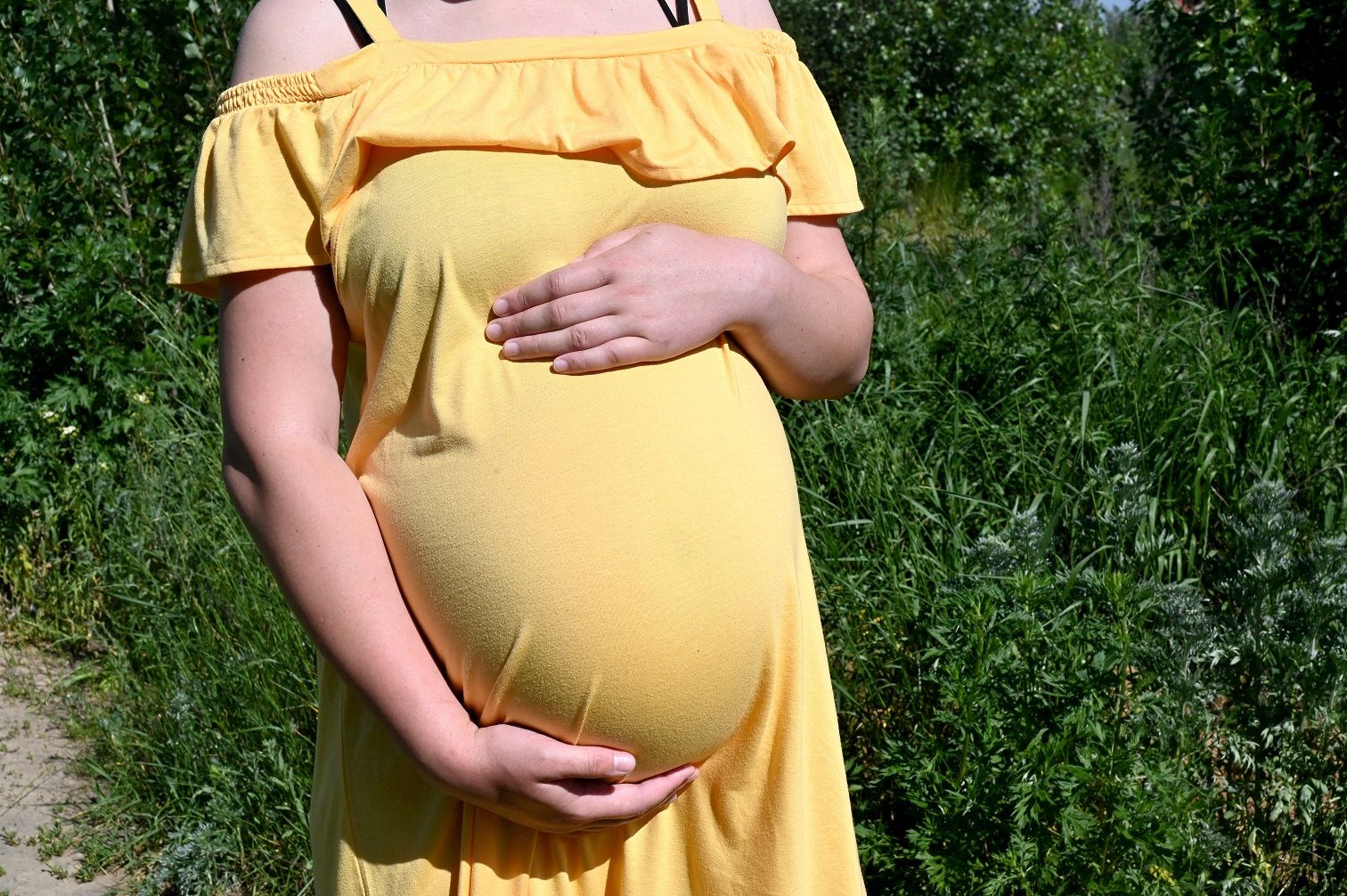
Are there psychological consequences for a child through surrogacy? A recent study suggests that there are not. But critics are not too sure.
“Assisted reproduction kids grow up just fine”, claims a news headline on Cambridge University’s website. A long-term study headed by Prof. Susan Golombok followed 65 UK families over twenty years to see how children born through various ways developed psychologically. They conclude that there is no difference between a child born through surrogacy, for example, or born traditionally.
However, the researchers found that mothers who began to tell their children about their biological origins in their preschool years had more positive relationships with them. “This research means that having children in different or new ways doesn’t actually interfere with how families function. Really wanting children seems to trump everything – that’s what really matters”, says Golombok.
According to the Belgian psychotherapist Anne Schaub, this research does not rule out psychological consequences for the child. Ms. Schaub wrote a book on the bonding between the child and its mother during pregnancy and shortly after. “During the nine months of prenatal life, the child develops a strong attachment with his mother who carries him, referring to studies by experts in the field such as Winnicott and Bowlby. The basis of its identity is rooted there.” After 25 years of observing children’s sufferings, the psychologist is categorical: “No child remains indifferent to a definitive break with the mother of birth and from the deprivation of his biological lineage. Abandonment anxiety is a very common consequence. The quest for identity is a second frequent one. The psychological effects of such a separation after birth need further analysis.”
Prague
On Tuesday, November 21st, Ms Maurel shared her story in the parliament of the Czech Republic in Prague.
I was born from surrogacy and I am now fighting against surrogacy.
— Olivia Maurel (@maurel_olivia) November 22, 2023
Here is my speech given at a conference in the Czech Republic parliament, and most precisely in one of the most prestigious rooms of the parliament. I am so honored.
Please listen and feel free to share ! pic.twitter.com/Kjg0o9iboA
Related Articles


